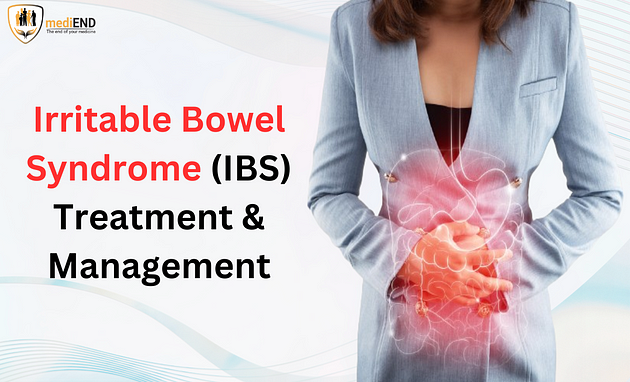Irritable Bowel Syndrome (IBS) Treatment & Management
Irritable Bowel Syndrome (IBS) is a common disorder affecting the digestive system, with an estimated 10–15% of the global population suffering from its symptoms. It is characterized by abdominal pain, bloating, and changes in bowel habits, which can significantly impact an individual’s quality of life. Effective management of IBS is crucial in alleviating symptoms and improving daily functioning. This involves two main aspects: psychological support and dietary measures. While pharmacologic treatment can be helpful in managing symptoms, it is considered adjunctive and should be directed at specific symptoms, such as persistent visceral hyperalgesia. In this article, we will explore the different components of IBS management and how a collaborative approach can lead to better outcomes.
Understanding Irritable Bowel Syndrome (IBS)
· Defining IBS: IBS is a chronic functional disorder of the Digestive System that is not caused by structural or biochemical abnormalities. It is often diagnosed based on a set of symptoms rather than specific diagnostic tests.
· Symptoms: The most common symptoms of IBS include abdominal pain or discomfort, bloating, and changes in bowel habits (such as diarrhea, constipation, or a combination of both).
· Prevalence and causes: IBS affects people of all ages, but is more prevalent in young adults and women. Its exact cause is unknown, but factors such as diet, stress, and gut microbiome have been linked to its development.
· Impact on daily life: IBS can significantly affect an individual’s daily life, leading to missed work or social activities, and reduced quality of life. Therefore, effective management is crucial for improving overall well-being.
Psychological Support for IBS Management
Individuals with Irritable Bowel Syndrome (IBS) not only suffer from physical symptoms, but also experience emotional distress and psychological challenges. This can include anxiety, depression, and stress, all of which can contribute to the severity of IBS symptoms. Therefore, it is important to address these psychological factors in managing IBS.
Dietary Measures for IBS Management
Diet plays a crucial role in managing symptoms of irritable bowel syndrome (IBS). For many individuals, certain foods can trigger or worsen IBS symptoms. Therefore, identifying and avoiding these trigger foods is essential. Some common trigger foods include dairy products, caffeine, alcohol, and high-fat foods.
Understanding Visceral Hyperalgesia in IBS
Visceral hyperalgesia is a key aspect of irritable bowel syndrome (IBS) that contributes to the discomfort and pain experienced by individuals with this disorder. It is characterized by increased sensitivity to pain in the digestive system, leading to symptoms such as abdominal pain, bloating, and cramping. This heightened sensitivity is believed to be caused by changes in the nerves and muscles of the digestive tract, as well as alterations in the way the brain processes pain signals.
Conclusion
In conclusion, effective management of irritable bowel syndrome (IBS) is crucial for individuals with this common digestive disorder. Psychological support and dietary measures are the main aspects of IBS management, as they address the physical and emotional aspects of this condition.
Read More:- Irritable Bowel Syndrome (IBS) Treatment & Management

Comments
Post a Comment